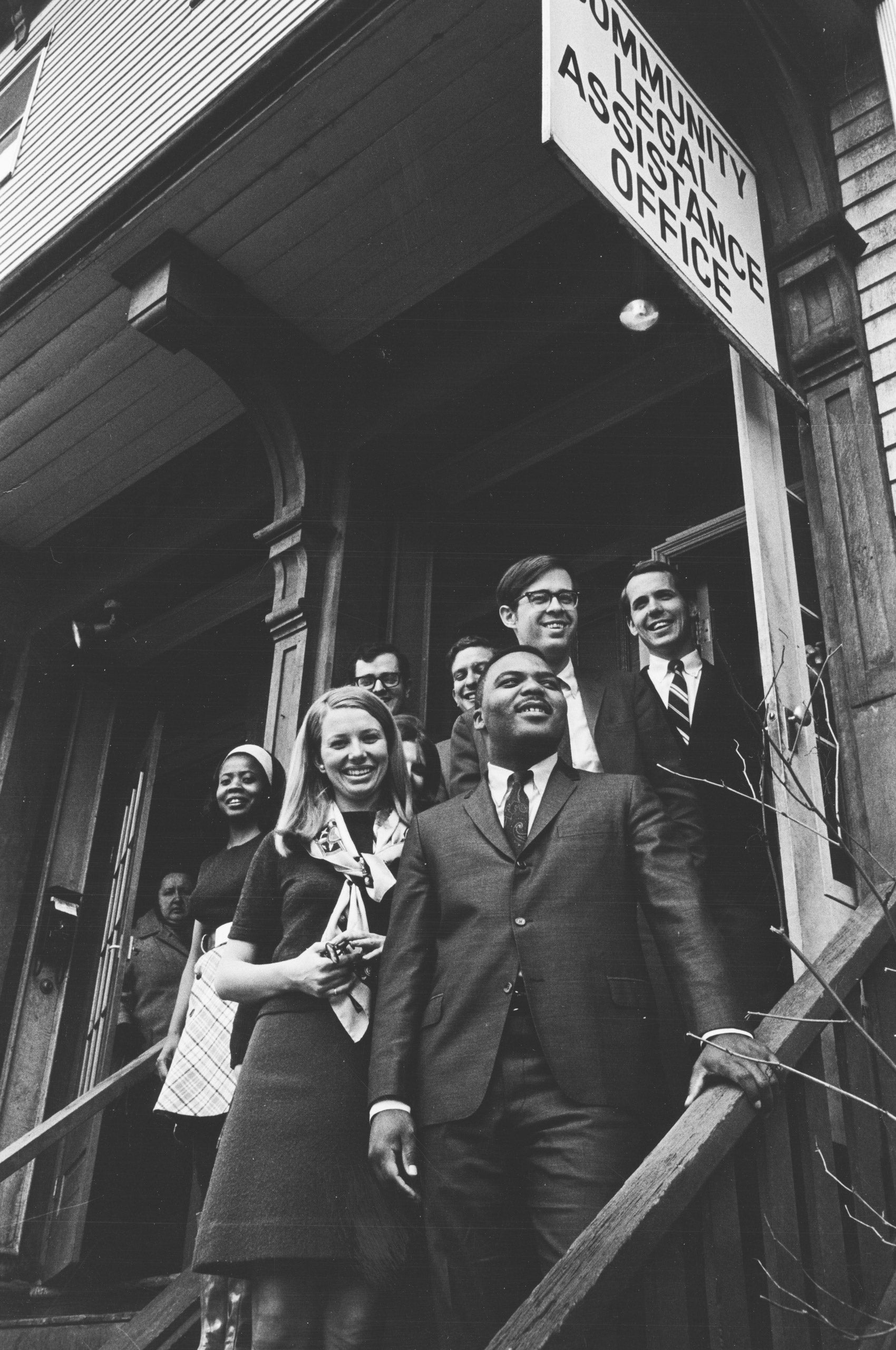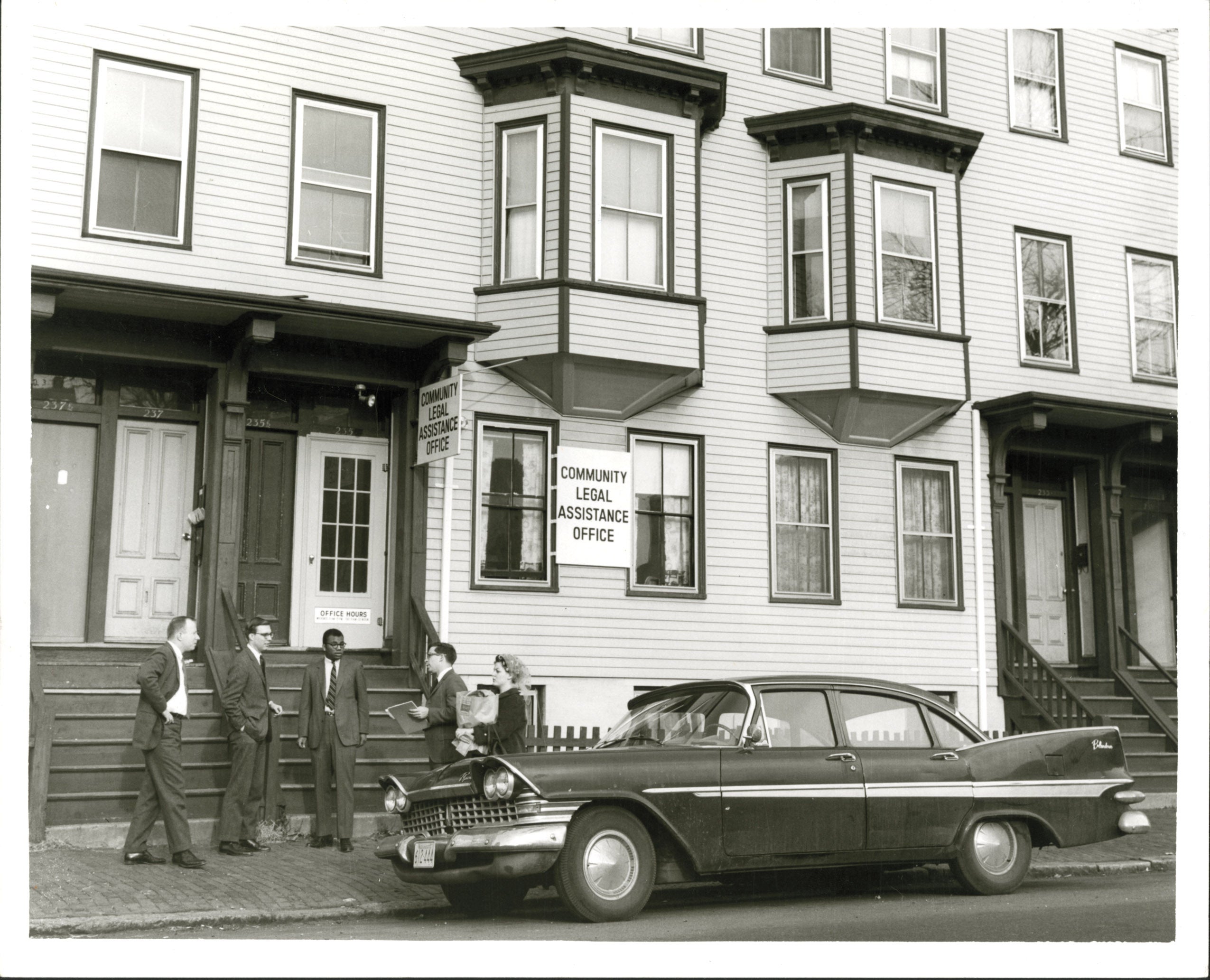During an event at Harvard Law School last year celebrating its 40 clinics and student practice organizations, Van Lanckton ’67 was delighted to hear about so many opportunities for students to work in the public interest today. But he also felt a sense of pride and nostalgia as he recalled the legal services experiment he and hundreds of other students had been part of more than 50 years earlier—at a time when clinical education did not exist at the school and change was in the air.
In 1966, with support from a grant from the Office of Economic Opportunity, HLS opened a neighborhood law office in East Cambridge directed by John Ferren ’62 and staffed by law student volunteers. The Community Legal Assistance Office, or CLAO, became a full-service law office helping low-income residents with whatever legal issues arose, criminal as well as civil, and providing real-world training for law students. Among them was Lanckton, who after graduation served as a staff attorney for the organization and then its director until 1971 when CLAO merged with another local legal services organization.
Lanckton, whose career has included lawyering in state government and private practice, and, in his seventh decade, becoming a rabbi, has always been good at bringing people together. Last spring, he decided it was time for a CLAO reunion. On an afternoon in May, the first floor of the house in Newton he shares with his wife, Alice, was full of others like him for whom this brief experiment had had an outsized effect.
Howard Cohen ’71 recalled that as a student, he loved the law but felt disconnected from some aspects of law school. His involvement in CLAO allowed him to express his social concerns and became the foundation of his career. After graduation, he worked at the Cambridge Housing Authority and eventually developed a practice in affordable housing “doing a lot of adversarial, opening-up-the- suburbs work,” he said, under Chapter 40B, the Massachusetts affordable housing law. He went on to found an affordable housing company, Beacon Communities. “CLAO jump-started it all,” he said.
Some students who participated came from other law schools. Barbara Buell, then a Northeastern student, described her first experience with CLAO in 1969 as very much “jump right in.” She remembered the terrible panic she felt the first day when a woman came in wanting a divorce. “Oh my god, what am I going to do?” Buell recalled thinking. But her supervisor conducted the interview and showed her. By the next week, Buell was in court representing the woman, filing the papers and going before the judge. By the end of her stints at CLAO, she had helped train other law students and worked on more than 200 criminal matters at the Third District Court in Cambridge, even handling two six-person jury trials. No one she represented went to jail, she said, a sign that she’d learned a thing or two. After Buell passed the bar, it was thanks to CLAO that she felt ready to practice law. Just as important, she stressed, “CLAO taught me how much fun it is.”
Peter Lauriat, a retired Massachusetts Superior Court judge, agreed. “There was a great sense of camaraderie, a willingness to work together for the common good,” said Lauriat, who was a student attorney at CLAO in the late ’60s. He recalled vividly the ins and outs of the work—from criminal cases, to efforts to help conscientious objectors in the wake of the Vietnam War, to the peace of mind he brought to an elderly woman for whom he drafted a will.

John Cratsley, an attorney who supervised Lauriat and many others at CLAO, recalled the dedication and the passion of the volunteers “who wanted to be involved in the law as it affected poor people.” Like Lauriat, Cratsley went on to serve as a judge on the Massachusetts Superior Court and for many years has taught a clinical course at HLS on judicial process in the trial courts.
At the center of many circles of conversation during the reunion was a Harvard lawyer and teacher who has perhaps the deepest knowledge of CLAO’s long-term impact: HLS Lecturer on Law Jeanne Charn ’70. Charn views CLAO as a precursor to the Legal Services Center, the school’s first clinic, which she started with Professor Gary Bellow ’60 in 1979 and which was the beginning of HLS’s clinical program.
Charn volunteered at CLAO as a 3L and then was hired as one of the supervising attorneys, helping Buell, Cohen, and numerous other CLAO students to get their start. CLAO not only helped her, recalled Charn. It changed her life. “It wasn’t just legal services,” she said. “It was the way we did it. It was being so close to the community.” When she and Bellow started the Legal Services Center, CLAO was absolutely the inspiration: “a neighborhood-based program that followed the community’s lead. No matter was too small.”
“We didn’t get it right all the time. We missed things,” said Charn. “But my whole life’s work started there.”
